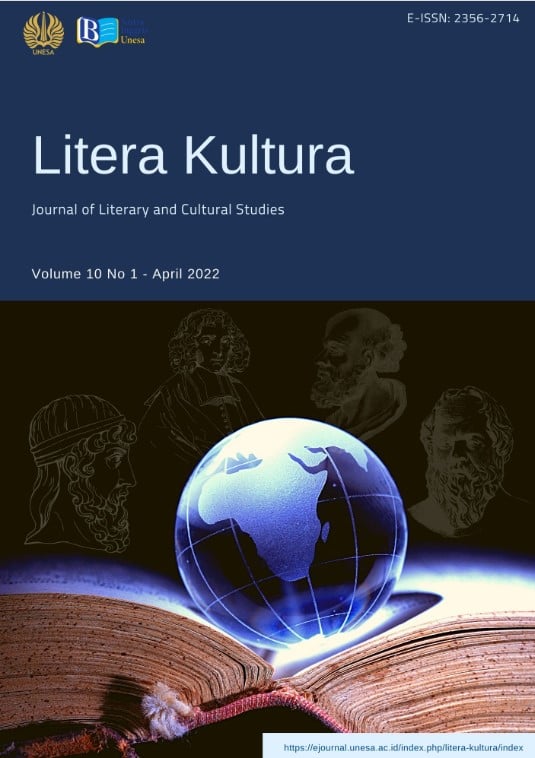Postcolonial Views on the Application of Mimicry in My Name is Khan
DOI:
https://doi.org/10.26740/lk.v10i1.48294Abstract
The term postcolonial consists of 'post', which means after and 'colonial', which means colonialism. It can be concluded that postcolonial was the period after colonialism. Homi K. Bhabha was an outstanding figure in postcolonial studies. He was the main figure in postcolonial studies and was vigorously influenced by Western poststructuralist theory. One of the films that contain postcolonial is My Name is Khan by Karan Johar, about the discrimination shown by America's treatment of Muslims. From the context of the film, it can be seen that the more dominant concept of postcolonial by Homi K. Bhabha is mimicry. Mimicry refers to a situation where the colonized people try to imitate the colonizer, and the imitation is never the same. Different imitations become ridicule for the colonizers, and this mockery is actually the colonized people's way of fighting back. The purpose of this study is to find out how does mimicry depicted in My Name is Khan and how mimicry is the resistance or not in My Name is Khan. This study uses a qualitative method by applying a theory of post-colonialism by Homi K. Bhabha, which is manifested by the data in the film. The primary data obtained in this study were taken from the film My Name is Khan in the form of dialogues, scripts, and scenes. In addition, secondary data such as articles, e-journals, e-books, and other online sources are used to support this study. The results show that the postcolonial concept of Homi K Bhabha, which is more dominant in My Name is Khan, is mimicry.
Downloads
Downloads
Published
How to Cite
Issue
Section
 Abstract views: 599
,
Abstract views: 599
, PDF Downloads: 394
PDF Downloads: 394




